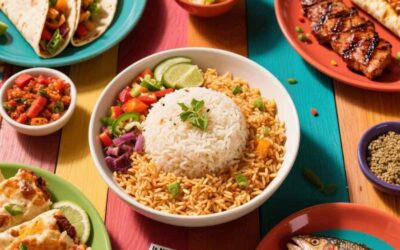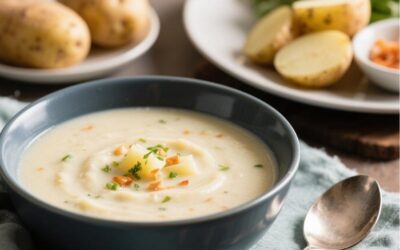Restaurants thrive on teamwork. Behind the scenes of any well-run dining experience is a seamless collaboration between kitchen staff, servers, and support staff. One role that plays a critical part in keeping this harmony intact is the food runner. But what exactly does a food runner do, and why is this role so vital?
If you’re exploring new opportunities in the hospitality industry or you’re a restaurant owner looking for ways to enhance your service, this guide is for you. We’ll break down the role of a food runner, their responsibilities, the skills needed for the job, and how they contribute to a restaurant’s success. By the end, you’ll have a better understanding of this essential position and why it’s a game-changer in the hospitality space.
What Is a Food Runner?
A food runner is a key member of a restaurant’s service team, responsible for delivering food orders from the kitchen to diners. They’re the link between the “front of house” (dining area) and the “back of house” (kitchen). While this role might sound straightforward, it requires exceptional organizational skills, the ability to multitask, and a sharp focus on timing and presentation.
Unlike servers (who take orders and interact directly with diners), food runners focus on ensuring dishes arrive at the table promptly, correctly, and in pristine condition. Think of them as the wind beneath the restaurant’s wings, ensuring smooth workflow and enhancing customer satisfaction.
Key Responsibilities of a Food Runner

The role of a food runner is far-reaching, often involving tasks beyond simply delivering plates. Here’s a breakdown of their main duties:
1. Delivering Meals with Speed and Precision
Food runners transport dishes quickly from the kitchen to diners, ensuring that hot food stays hot and cold food stays cold. Timing is everything in this role, as delays can affect the dining experience.
2. Ensuring Order Accuracy
A food runner double-checks each order before delivering it to the table, cross-referencing tickets to confirm all items are accounted for. This meticulous attention helps prevent mistakes, easing pressure on servers and chefs.
3. Explaining Dishes to Guests
Although food runners usually aren’t responsible for full guest interactions, they may need to describe dishes, including ingredients or allergens. A strong understanding of the menu ensures consistency and answers any last-minute customer queries.
4. Maintaining Cleanliness
Food runners help ensure the restaurant floor stays clean and organized. Tasks include clearing plates, wiping down tables, and helping reset areas for new guests.
5. Supporting Servers and Kitchen Staff
Food runners are the ultimate team players. They might deliver drink refills, check on additional guest needs, or ferry messages between servers and chefs. Their flexibility ensures smoother operations during busy dining hours.
Why Restaurants Need Food Runners

Every restaurant operates differently, but establishments that hire food runners often experience noticeable improvements in efficiency and service quality. Here’s why food runners are so important:
- Faster Service
With food runners managing deliveries, servers can stay focused on taking orders and providing excellent guest service. The kitchen team also operates more efficiently, reducing bottlenecks.
- Better Customer Experience
A food runner ensures dishes arrive at the perfect temperature and with 100% accuracy. This attention to detail boosts overall satisfaction and leaves customers with a positive impression of the restaurant.
- Improved Workflow
By acting as the bridge between kitchen and dining areas, food runners reduce the workload on servers and allow the entire team to focus on their tasks. This leads to better teamwork and less stress during peak hours.
Skills and Qualities Every Food Runner Needs
Being a food runner is fast-paced and demanding, making it an ideal role for energetic and adaptable individuals. Here are some essential skills and traits for success in this role:
- Physical Stamina
Food runners are on their feet for hours and may carry heavy trays or multiple dishes at once. Physical fitness and stamina are non-negotiable.
- Strong Communication Skills
Food runners act as intermediaries between various parts of the team. Clear communication is essential for ensuring accuracy and maintaining smooth operations.
- Attention to Detail
From double-checking tickets to delivering dishes without spills, food runners must pay close attention to every detail.
- Ability to Multitask
Juggling multiple orders, prioritizing deliveries, and assisting servers under time pressure are everyday challenges for a food runner.
- Teamwork and Positivity
A food runner thrives in a team environment. A can-do attitude and willingness to help wherever needed set the best runners apart.
Who Should Consider Becoming a Food Runner?
The role of a food runner is ideal for individuals looking to build experience in the hospitality or restaurant industry. It’s often viewed as an entry-level position, but it’s also a stepping stone toward higher roles such as server, bartender, or even restaurant manager.
Job seekers who enjoy dynamic environments, have strong people skills, and excel under pressure are a natural fit for this position. Students, part-time job seekers, and people looking for a way into the restaurant world can benefit greatly from starting as a food runner.
Tips for Hiring the Right Food Runner
For restaurant owners and managers, hiring the right food runner can make all the difference. Here’s how to identify the perfect candidate:
- Look for Energy
Food runners need stamina and a sense of urgency. Look for candidates who seem energetic and ready to hit the ground running.
- Prioritize Communication
During interviews, gauge how well the candidate communicates. Since they’ll be relaying information between the kitchen and dining room, strong communication skills are key.
- Check for Team Spirit
Ask about previous team experiences to understand how well they collaborate with others.
- Offer Training
Even experienced food runners benefit from a clear onboarding process. Invest time in training new hires on your menu, workflow, and expectations to set them up for success.
A Day in the Life of a Food Runner
Wondering what it’s really like to be a food runner? Here’s a snapshot of a typical day:
- Before Service
A food runner arrives early to familiarize themselves with the menu, inspect the dining area, and ensure all tools (e.g., trays and condiments) are ready.
- During Service
The food runner rotates between the kitchen and tables, coordinating with servers on high-priority orders. They stay on their feet, moving quickly to bridge gaps and support teammates.
- After Service
Cleaning duties may fall to the food runner once the dining rush slows. They ensure the restaurant is spotless and reset for the next service period.
Elevating the Role of Food Runners in Your Restaurant
For restaurants that want to create standout dining experiences, treating the food runner role with respect and importance is critical. Provide proper training, recognize efforts, and encourage growth within the team. Happy and motivated food runners can become secret superstars of your restaurant’s success.
Join the Hospitality Team or Build a Better One
Whether you’re a job seeker looking to start your restaurant career or a manager looking to hire top-notch food runners, this role is essential to any successful dining operation. By understanding the responsibilities, skills, and value food runners bring, you’re one step closer to advancing in the hospitality world.
Are you ready to speed up service and delight your customers? Start by giving food runners the attention they deserve!



















